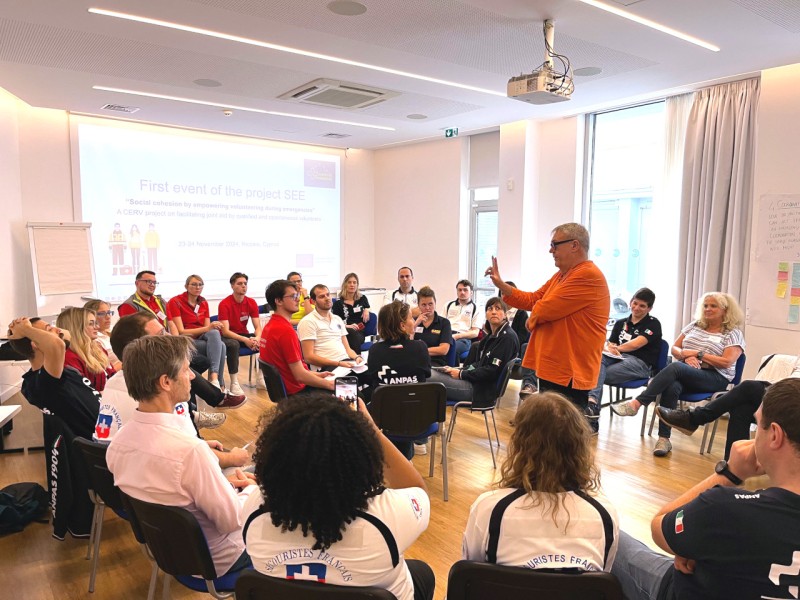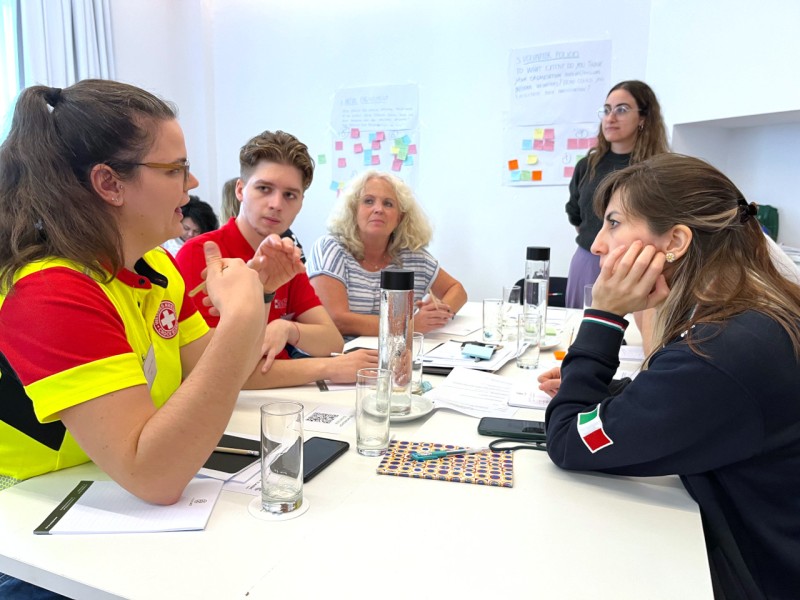Enabling joint action of qualified and spontaneous volunteers: “SEE”
Posted on |
From 23-24 November, an “Active Citizens’ workshop” was held in Nicosia, Cyprus, as part of the “Social Cohesion by Empowering Volunteering during Emergencies” project, also known as Project SEE. This project aims to bring together spontaneous volunteers and qualified, trained volunteers to work together during large-scale emergencies.
The increasing number of natural disasters poses challenges for aid organiastions and their qualified volunteers. Personnel resources of the organisations, as well as their long-term operational capacity, are being tested – when it comes to what the individual volunteer’s circumstances, such as their employer or family, can tolerate, but also when it comes to personal breaking points. At the same time, there are frequent spontaneous shows of solidarity from citizens, who want to help people affected by disaster. To take these offers of aid as the resource that they are und use them sensibly – in the sense that their tasks are useful and in the sense that the helpers themselves, spontaneous and qualified, perceive their work as meaningful and appreciated – is a complex task.
 Contrary to one-way “management approaches” for spontaneous volunteers, SEE follows a participatory approach. Town hall meetings will be held in several model municipalities to develop local concepts for joint spontaneous/qualified volunteer action. The first step towards achieving this goal was the “Active Citizens’ workshop”.
Contrary to one-way “management approaches” for spontaneous volunteers, SEE follows a participatory approach. Town hall meetings will be held in several model municipalities to develop local concepts for joint spontaneous/qualified volunteer action. The first step towards achieving this goal was the “Active Citizens’ workshop”.
During the workshop, qualified volunteers from our consortium partners were introduced to various participatory methods, such as open space and world café.These tools will enable them to conduct successful town hall meetings in their respective municipalities, leading to good results and effective community engagement.
The town hall meetings, which are scheduled to take place in spring 2025, mark a key milestone in our project. Building on the foundations laid during the workshop, they will bring together spontaneous and qualified volunteers to deliberate which forms of collaboration and coordination are suitable for both groups of engaged citizens, with the goal of achieving a constructive pooling of resources and, ultimately, more resilient communities.
A project website that will document SEE’s progress is forthcoming.
Project SEE is co-financed by the European Union through the CERV (Citizens, Equality, Rights and Values) programme.

